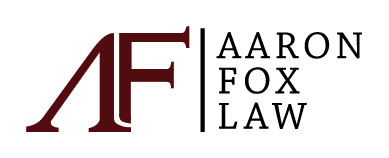Closing: A Seller’s Perspective
What Is a Closing?
Closing is when the buyer and seller fulfill their obligations and the buyer transfers the purchase and signed agreements in exchange for ownership and possession of the property. Because of this, the Closing date is extremely important for both the buyer and the seller. Once the Closing is complete, the escrow agent will release the purchase price to the seller.
Where Does the Closing Happen?
The Closing typically occurs at the office of the escrow agent. However, the Closing can also happen at the lender’s offices, they buyer’s attorney’s offices, or at location that is convenient for the parties involved.
How Long Does It Take to Close?
Once you’ve accepted an offer for your property, it can take anywhere from 30 to 60 days to complete the Closing. The actual Closing consists of executing documents and other legal formalities on the Closing date and should only take a few hours.
Do I Need to Attend the Closing?
The seller may, but does not need to, attend the closing in person. The seller can often pre-sign the transfer documents or give their lawyer a power of attorney to sign any documents on behalf of the seller. Ultimately, the decision of whether to attend the Closing is up to you.
What Are Closing Costs and Who Pays Them?
Closing costs are the fees and other expenses associated with selling your home. Each of the buyer and the seller will have their own costs associated with the closing process. In Chicago, the seller’s closing costs are typically 5-10% of the total sales price. It is helpful to divide these costs into three categories: 1) preparatory costs; 2) post-contract costs; and 3) costs paid at Closing.
Preparatory costs typically include cleaning, moving, repair, and staging fees associated with getting the home ready for market. While you can minimize some of these costs, you can usually expect to receive a better offer if the home is fully cleaned and properly staged when it goes on the market.
Post-contract costs include home inspection and land survey fees. These costs are only paid after you’ve accepted an offer and help move the Closing process forward toward the ultimate sale.
Costs paid at closing include pro-rata property taxes, City of Chicago transfer taxes, title fees, realtor commissions, and attorneys’ fees. These costs are required to be paid prior to transferring the property to the buyer.
Seller’s Obligations During the Closing Process
Prior to Closing, the seller must remove all of their personal possessions from the property. Large appliances, such as a washer/dryer, refrigerator, or dishwasher, may or may not be included in the sale so be sure to double check the sale agreement to determine what you should move out of the home. The seller must also make any repairs to the property that were agreed upon I the sale agreement prior to turning over possession of the property. Finally, the seller should ensure that the home is “broom clean” immediately before the Closing date, unless the property is being sold “as is”.
Additionally, while not required, it’s a good idea to set up your mail forwarding and notify any creditors and subscription services of your change of address prior to Closing. This will help ensure that you don’t miss any important notifications while you are moving out of your current home and into your new one.
As you can see, the Closing process is long and involved and can take up substantial amounts of time, energy, and money if its not done correctly. Hiring experienced professionals to assist you with the Closing process is critical to ensuring that your Closing experience goes smoothly. The real estate team at Aaron Fox Law has completed numerous closings for our clients and we know the entire process from start to finish, inside and out. Selling your home is one of the biggest financial decisions the average person makes in their life - let our experience help you make sure that you get the most for your home while minimizing your costs along the way. Call us today at 312-224-0028 or click here to fill out a form.

